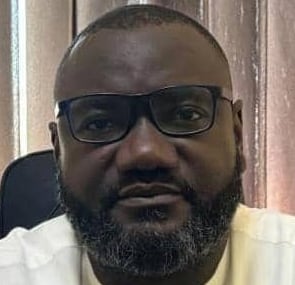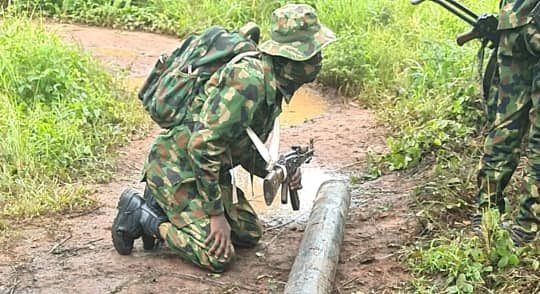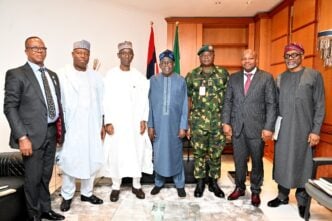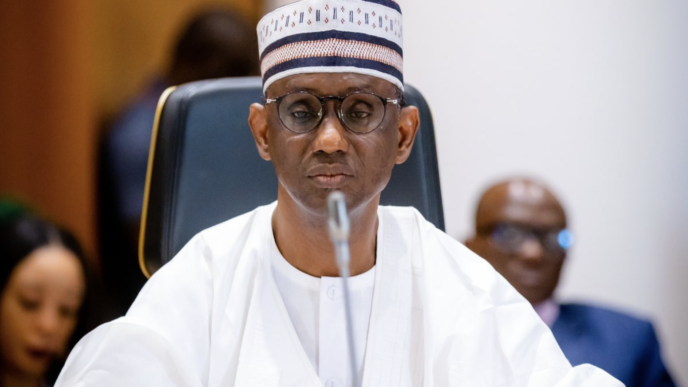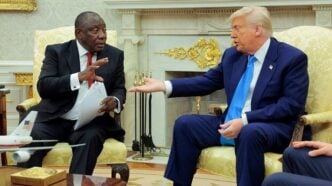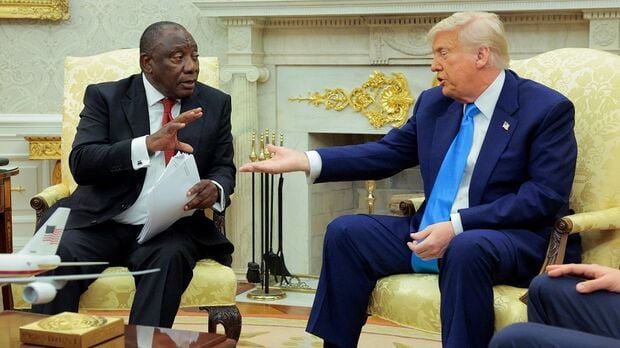This article is a follow-up to my previous work, “Strategic Spiritual Intelligence in Warfare.” I expounded on the position of Prof OBC Nwolise, a known advocate of the concept, calling for the adoption of strategic spiritual intelligence (SSI) as a national security strategy. There was some misunderstanding about my stance. Some suggested that I advocated for relying solely on SSI by our security agencies to address the numerous security challenges in the country. That would be unwise. My position was that it could be integrated into the security framework to complement Strategic Empirical Intelligence (SEI). However, it is important to note that SSI is prone to abuse.
Strategic Spiritual Intelligence (SSI) and Strategic Empirical Intelligence (SEI) have distinct characteristics but intersect in meaningful ways. SSI operates in the intangible realm, focusing on supernatural entities and forces such as angels, gods, and spirits. In contrast, SEI is grounded in tangible, empirical reality, relying on planning, formulation, and execution based on available information. It is primarily physical. Here are some examples. A security personnel is deployed in battle somewhere in the country. He visits his pastor, imam, or deity, depending on his faith, and prayers or sacrifices are offered for his protection and safe return from the battlefield. While on the battlefield, he has near-death experiences but survives. He automatically credits his survival to the prayers or sacrifices offered on his behalf. And not to the bulletproof vest he wore or the superiority of his artillery. In such an instance, you can’t discredit the efficacy of the prayers or sacrifices offered for the security operative because he survived. This is SSI, and it is intangible.
Another example: a security operative is deployed to the war front. He is fully equipped for operations with a bulletproof vest, helmet, and the latest assault rifle. His team has full air support, tank support, a clear map of the area, and adheres to the dos and don’ts. He receives a briefing from superiors on the area of responsibility (AOR), relies on his skills, experience, and training to navigate the situation, and returns unharmed. This is SEI.
Let me create a scenario to help us understand the intricacies involved in warfare and why it is unhelpful to draw conclusions about the military’s efforts in ending the Boko Haram insurgency. Boko Haram insurgents use both SSI and SEI. They have spiritual leaders who offer prayers and sacrifices for them and advise them on when to attack. They also have heavy artillery that they use in battle with the military. For example, their spiritual leader can make them invisible to the military until they reach a certain radius, catching the military off-guard and accomplishing their mission. They can also be fortified with rings, bracelets, incisions, and other items that deflect shots and bullets. They can also burn incense that either hypnotizes the military or causes them to lose coordination during battle, resulting in heavy casualties. Often, things are deeper than what is reported in the news. The recent resurgence in Boko Haram attacks on military bases in the Northeast could be used as a case study.
Advertisement
Have you ever wondered how daring they can be when attacking military bases? Their spiritual fortification gives them an extraordinary level of confidence to confront a professional force with superior artillery. From what I gathered from friends deployed in the Northeast, their stories are guaranteed to send chills down your spine. A friend shared how they dislodged a Boko Haram base in one of the communities in the Northeast. He said it was a fierce battle that he won’t forget in a hurry. He narrated how one of the insurgents was captured with bullet wounds but wasn’t bleeding. He said, “His body was riddled with bullets, and the young man was still talking and making moves to escape. There were bullet holes all over his body and not a drop of blood.” He also narrated how, on some occasions, when Boko Haram insurgents are attacking, they appear in several hundred like spirits walking in the air and they keep multiplying. I don’t envy our military personnel out there in the Northeast. If you come across any of them, please show them love and appreciation. They “wrestled against principalities.”
Take it or leave it, the non-state actors have the edge because they use a combination of SSI and SEI. But the military officially relies solely on SEI in the prosecution of the war against Boko Haram insurgents. The answer to the question of who holds the advantage is obvious. The military is disadvantaged because SSI is not a component of the national security strategy and can’t be deployed holistically, but by pockets of security operatives, as commonly expressed in the phrase “I went to the village to cook myself.” It could also be “my pastor gave me a handkerchief to put in my pocket and anointed oil to anoint my head and feet before going into battle. My deity asked me to make an incantation before pulling the trigger,” and many more examples that resonate.
Let me share an interesting story. A very senior colleague and mentor sent me a short clip after reading my article on Strategic Spiritual Intelligence in Warfare. In the clip, some individuals suspected to be kidnappers were seen immobile on the floor with their rifles by their side. He said, “These kidnappers were reportedly hypnotized by ‘agebekoya,’ a traditional Yoruba security corps within the territory of Owo in Ondo state, and it aligns with your SSI possibility.” I responded with a smiling emoji, but the lesson was not lost on me. I believe there are numerous stories of the use of SSI as a security mechanism in various parts of the country. Some we have experienced firsthand, and some we have been told or read in folklore.
Advertisement
My position in this article does not advocate for abandoning Strategic Empirical Intelligence in war strategies. That would be disastrous. In fact, it is the mainstay of war strategies and has led to significant successes. My position is essentially for the addition of Strategic Spiritual Intelligence to Strategic Empirical Intelligence in the formulation and execution of war strategies. This would increase the chances of success in battle. From an SSI perspective, the battleground is in the mind, where beliefs take shape. Do we agree that all battles are first fought in the mind?
Dr. Donald Grey Barnhouse, in his book “The Invisible War” (published in 1965), explores the profound conflict between good and evil in the spiritual realm. He writes, “Because this war cannot be easily seen, it is nonetheless taking place all around us, and it is a body of truth that God has revealed to us in His Word, one that every believer should understand.” This summarizes my position. We can’t continue to take things for granted. And Prof OBC Nwolise advocated that “today’s defence and security trends feature irregular actors that deploy irregular methods, it has become imperative that the state and its defence and security agents either upgrade or remain incapable of being at par with or ahead of the irregular actors.” This is food for thought.
Ocheja is a scholar and communicator specializing in Nigerian and African military documentation.
Advertisement
Views expressed by contributors are strictly personal and not of TheCable.
